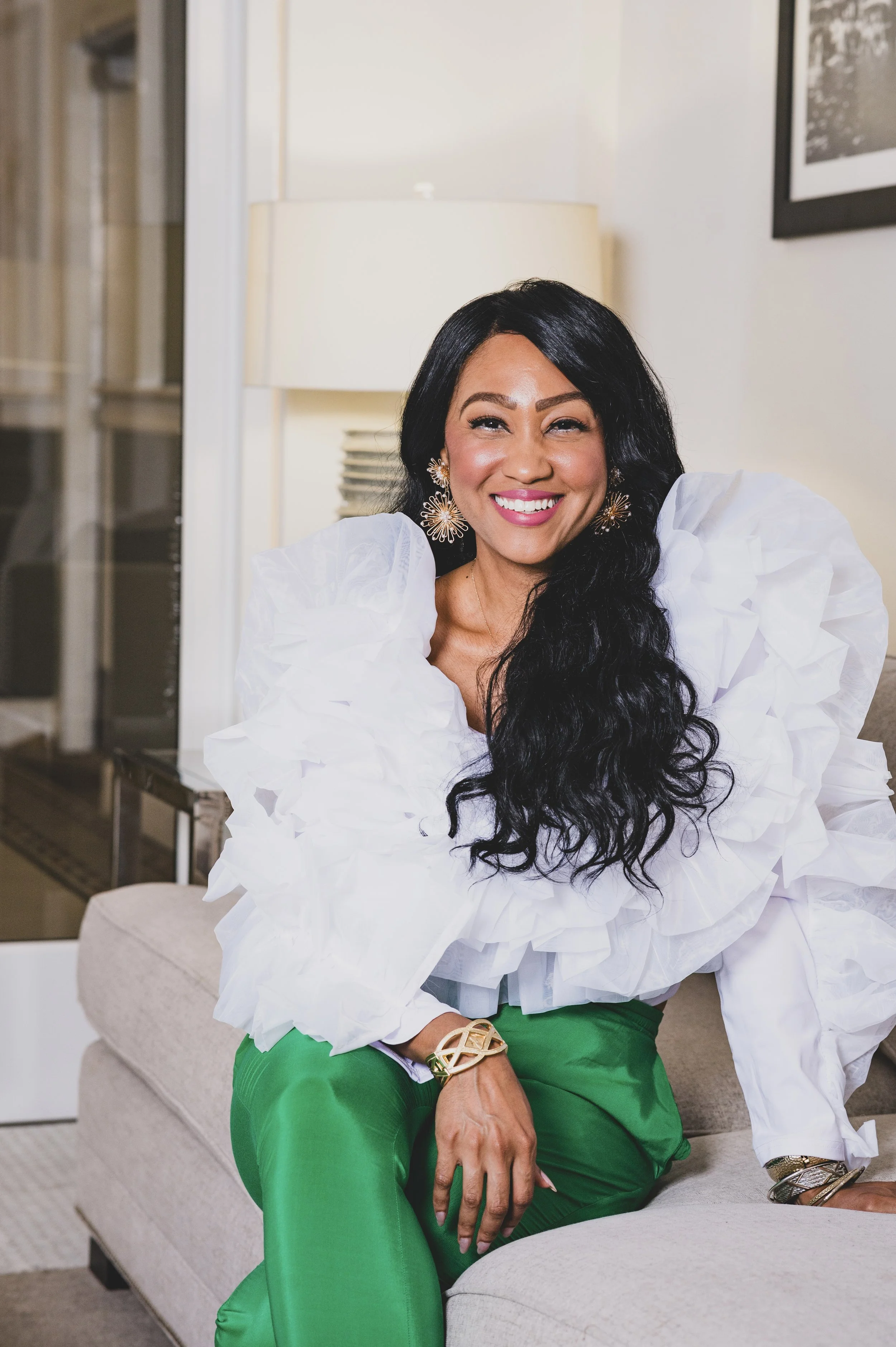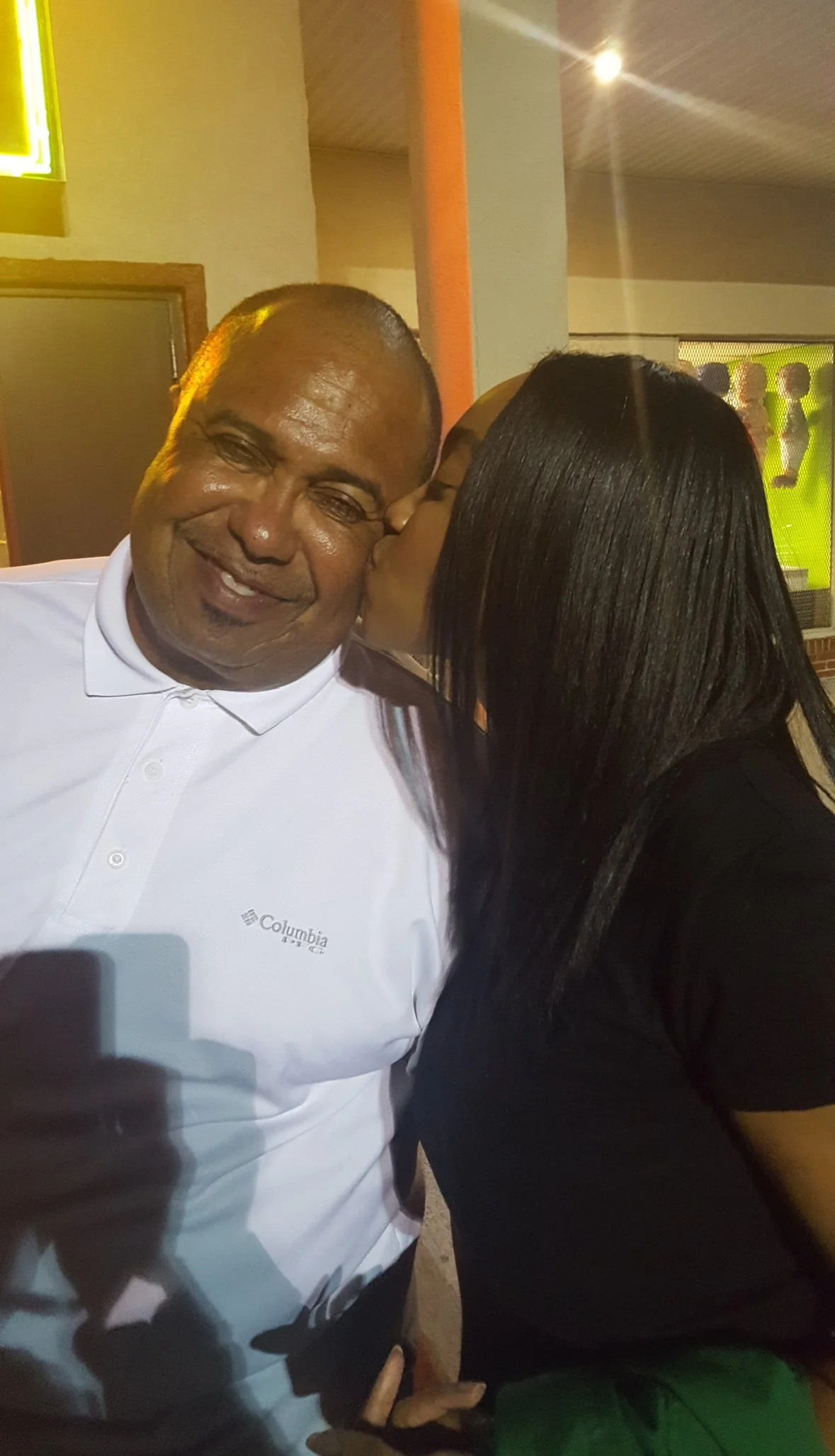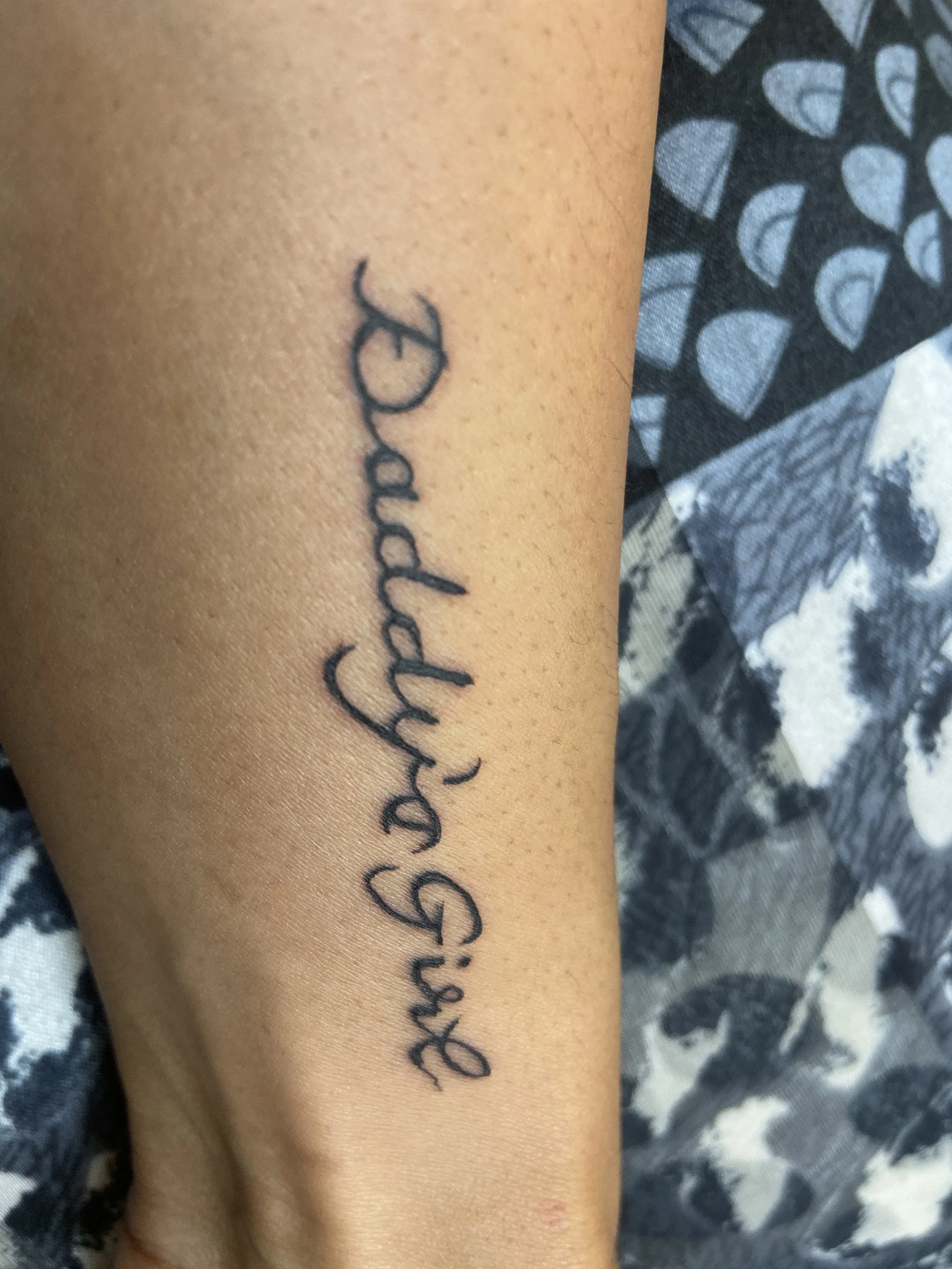Why The Passing of My Father Was The Greatest Loss And Greatest Blessing of My Life
“You don’t have to earn my love”
I have a tattoo on my left forearm inscribed, “Daddy’s Girl,” in stylized font. I was very particular when I decided to get the small inscription as my first (and currently only) tattoo, choosing to commemorate my father in this way eleven months after his sudden passing, yet not completely unexpected to me, on December 9, 2017 at the age of 61.
Like many young girls, I longed for my father’s admiration and attention. He was an educator, a minister, a basketball coach, and a mentor. Really, my dad pastored people. He had such a big sanguine personality with a big voice, and lots of laughter to go with it, proudly hailing from Jamaica Queens, NY.
I don’t have some horror story about him, so please don’t make that assumption before this post continues. I love my Daddy and I am so grateful for him. I also have some realizations about how some of the ways that he raised me created challenges in my identity, and how I now understand—after doing my own personal healing, introspective work—that I am rewriting my own story so that I am finally able to show up as the truest, most authentic version of myself.
My father was wonderful and he used basketball as an escape from the emotional pain of his broken childhood. His parents were legally married for several decades until his father’s sudden passing of a heart attack in December of 1984; however, their time together under the same roof was tumultuous according to an essay my father wrote and shared with us. They eventually separated, living their lives apart, for more than 15 years. When my grandfather officially left the household, my dad was 11 years old. As the eldest of five children and namesake of his father, his mother and other women in his family deemed him the “man of the house.” In my estimation, this was entirely too much responsibility to put on a child based upon the decisions of adults. Thankfully, my dad decided to take personal responsibility for the life that he wanted, much different than the one he saw growing up, making his way to attend Livingstone College in Salisbury, North Carolina where he met my mother, fell in love, and married her (I don’t blame him—she’s a catch). After a short stint back in NYC, they built a life together in Newport News, Virginia, and as people say, “the rest is history.” They were happily married for 36 years until his passing. I talk more about their journey and my early years growing up here.
My father, while loving me and desiring the best for me, also required me to earn his love and acceptance. He spent the majority of his time trying to “save” so many people at school, at church, in the community—especially young Black males—that I always felt that I had to go to my father, wherever he was, in order to spend time with him. I believe that there is always a part of little girls that wants to please their father. As the first man that a young girl ever has the opportunity to “fall in love with,” I was no exception. However, as a result, I also experienced self-abandonment and guilt.
A few examples:
As I saw my parents working to save others, I felt like I had to save myself. I had to pay for college. I had to work to get what I wanted. I have worked for a paycheck since I was 16, but honestly longer than that, working to manage perceptions. School was work and so was church (my parents were teachers and ministers, remember?). My personality is introverted, melancholic—a contrast from my father. So, when my dad would come home, or if he was already home, he would come into my room and see me resting and ask, “Why are you laying down?” or as it was implied, "Why aren’t you working? or “Why aren’t you with other people?” So, I immediately felt the need to get up and do something. It just felt like what I was doing wasn’t enough (which I likely needed the rest to recharge so I could work), or even worse, that I wasn’t enough.
I played basketball for a few years in middle school and high school only to please my father. I talk more about that here too.
A few months before I finished grad school with my masters degree, my father had another heart attack (maybe three by this point—it’s hard to tell), so I made the decision to return home to Virginia to be close to my family. Jobs in my field weren’t in abundance in Hampton Roads as in major metro areas. My father knew the potential that I carried and always said that I could succeed anywhere—he was right—but I also didn’t want to lose precious quality time with my family by relocating. I wasn’t sure how much time we had, but I knew I needed to be home. I ended up staying in Virginia for eight years where I worked local jobs in education and started my first business. During my time locally, he would compare me regularly to one of his friend’s daughter around the same age who pursued a career in New York City after college. I guess this was supposed to stimulate me but instead, I thought, “Her dad is not Ben Moore” and even worse, that I am still not doing enough.
When I worked full time and started my PhD program at the age of 30, I decided to take a break from attending church each week because I was tired. My father said, “You need to go back to church.” I was exhausted.
My father felt and expressed that my brother and I owed him something because he was present for us, unlike he said that his father had been to him. He often said, “You know, I didn’t have my dad growing up. My dad wasn’t there for me like I’m here for you and Chris,” and although I felt an appreciation, this also placed a sense of guilt on me, fueled by manipulation in a sense, because he implied that this was the reason we should do anything he asked of us.
So, it’s like I always had to do something or give to please my father, but when I did things true to me (like pursuing other activities in which I was gifted instead of playing basketball, going on a missions trip, or starting a business in my chosen field of work), he expressed his displeasure. He definitely brought that coaching mentality home, and it was a lot, sometimes overwhelming, especially on me as a young woman.
The effect of this on me was growing up feeling that I had to earn love—to be seen—to be validated—to be recognized, and if I was not doing this, then I was unworthy. This thinking showed up in various relationships, causing me to give more than was necessary and overextend myself. I also pushed in my career and achievements, most of which were aligned, however, I rarely escaped the feeling that I had to work continuously, even on vacations, which I tied to my sense of self worth. I’ll never forget the relief I felt in 2022 right after completing my dissertation, and ultimately my PhD program, enjoying a vacation without taking any work with me for the first time!
Eventually, through therapy and my own personal healing journey, I had to believe that Candace was [and still is] enough. That if I never do anything else, if I never achieve anything else, if I never say anything else, and allow myself to just be—be me—that I am enough. I am loved. I am chosen. I am worthy. Worthy of love without performance. Worthy of rest. Worthy of stillness. Worthy of being me. Fully. Authentically. Completely. Unapologetically. Worthy of authenticity without perfection. Worthy without having to prove my worthiness. These are things that I still remind myself of daily and I’m honestly still working on, but this understanding has unlocked new levels of healing. Also, remembering that Jesus loves me without condition is freeing. I don’t have to earn God’s—My Heavenly Father’s—love, and I didn’t then either. When I heard this for the first time, I was in a group of women at the church I worked for a couple of years after my father’s passing, and it freed me. It’s what allowed me to choose myself when entering the early stages of burnout recently, and seeing my value beyond constantly working. The concepts of grace and sacrificial, unconditional love keep me in the present.
My father’s passing still remains the greatest loss of my life at this point. I know that my father loved me, “no question” as he would emphatically say, and parented the best way he knew how. There are many times that I have thought about how different things would be if my dad was still here. I miss him, but I know that he is having a great time in Heaven!
One of the most memorable instructions he said to me a few times in the years prior to his passing was, “Get you a man that treats you better than me.” It was a charge from a father to his daughter knowing that he had given me everything that he could the best of his ability. It was also the acknowledgement of a father to his daughter that he didn’t do everything right, and that I should expect to receive love from a man who will treat me well without requiring me to give to him first. This is the biblical model of love, which I know my father believed in.
So, I am grateful for a new chapter of my personal story, as well as the restorative love of my mother/spiritual midwife, which before my father passed, continuously helped my father see me as a woman, a lady, and a person overall.
I am also grateful that I choose to love me more now than ever, and even in the earthly absence of my father, this truth is my greatest blessing. XOXO
Here I was pictured at Mumsie’s (my grandmother’s-dad’s mom) house in St. Albans Queens, New York. I am wearing a t-shirt from a basketball camp, so this had to be around 8th or 9th grade at age 13 or 14. I honestly used to hide the shape of my developing body under these big shirts. I stopped playing basketball a year or two after this picture.
Today, I can work from the place of a lot more balance with chill. [Photo Credit: Patty B of Fringe Creative Co.]
My Dad’s 60th Birthday Dinner in 2016. He was really happy that day.
In addition to my dad, I also feel like I can now see this inscription with new meaning of God’s love for me. I didn’t really understand what that was fully until after my father passed.



